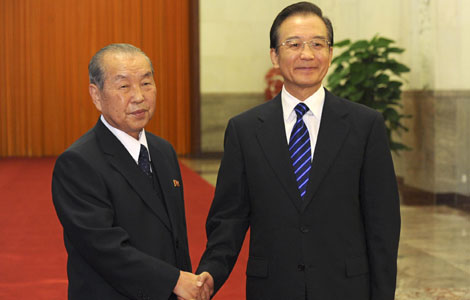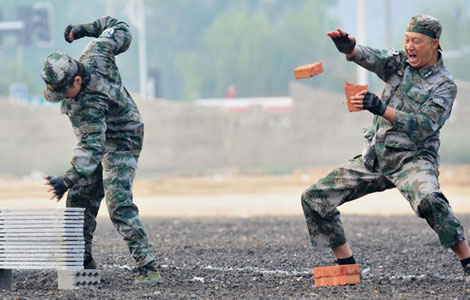IAEA seeks funds for post-Fukushima nuclear safety
Updated: 2011-09-26 23:19
(Agencies)
|
|||||||||||
VIENNA - The UN atomic agency urged states on Monday to provide extra funding to strengthen global nuclear safety in the wake of Japan's Fukushima accident -- a request some may balk at amid growing economic worries.
The head of the International Atomic Energy Agency, Yukiya Amano, also announced the UN body would send a team of experts to Japan next month to help sanitise areas contaminated as a result of the nuclear accident.
"For the engineers, what is going on in the reactor is the main issue of interest. For the local people, the most important is what happens with their house or rice field, so we need to decontaminate," Amano told reporters.
Japan does not have much experience in this area, he said, adding that some people were spraying water and digging up the earth in an attempt to clean up their homes.
"These things should be done properly, otherwise the amount of debris becomes huge. I hope we can give some advice."
The IAEA's annual gathering of its 151 member countries last week endorsed an IAEA plan to help ensure there is no repeat of the world's worst nuclear disaster in a quarter of a century.
Amano made clear the agency needed more money to turn the plan into reality, but did not give details.
"Meeting new and expanding demands for assistance from member states in nuclear safety, as well as in other areas, will require an increase in the agency's resources," he said.
"I encourage all countries in a position to do so to make additional resources available to the agency."
The bulk of money for the IAEA, which has more than 2,300 staff, comes from Western member states on a voluntary basis.
For 2010, the agency secured a budget increase of 2.7 percent in real terms to 315 million euros ($434.1 million), but this was considerably less than it had sought.
At a time of economic problems squeezing government finances, some European states have resisted budget hikes for the agency although the United States has increased contributions in recent years.
- Last-minute preparations for spacecraft launch
- Europe warned over its debt crisis
- Police sorry over case of sex slaves
- Saudi king gives women right to vote
- Forecasts signal late-week launch of Tiangong-1
- 57 officials punished for demolitions
- Palestine seeks full UN membership
- China to boost green investment
Hot Topics
Libya conflict, Gaddafi, Oil spill, Palace Museum scandal, Inflation, Japan's new PM, Trapped miners, Mooncake tax, Weekly photos, Hurricane Irene
Editor's Picks

|

|

|

|

|

|







